Well, that was pretty damn depressing.
 As I noted last week, in the broad sense there was no suspense about what was going to happen in this final episode of Angolmois: Genkou Kassen-ki. Tsushima was a massacre, the Mongols moved on to a few more of them and seemed an unstoppable force, then… Stuff happened. Tsushima is remote now, never mind the 13th century, so we don’t exactly what happened there – I don’t even know if the postscript about Hachiman temples referring to exiles being on Tsushima is true. But presumably a few locals did survive, hidden in the forests and caves, just as happened in this final episode.
As I noted last week, in the broad sense there was no suspense about what was going to happen in this final episode of Angolmois: Genkou Kassen-ki. Tsushima was a massacre, the Mongols moved on to a few more of them and seemed an unstoppable force, then… Stuff happened. Tsushima is remote now, never mind the 13th century, so we don’t exactly what happened there – I don’t even know if the postscript about Hachiman temples referring to exiles being on Tsushima is true. But presumably a few locals did survive, hidden in the forests and caves, just as happened in this final episode.
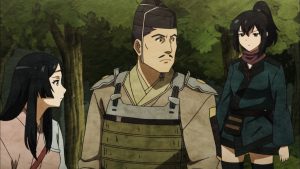 But somehow, as much as I hate to say it, I feel kind of cheated by both Jinzaburou and Teruhi surviving. With the overwhelming majority of men, women and children on the island being slaughtered, for both the main characters to have that sort of plot armor feels like a bit of a cop-out. Hell, even Amushi kicked the bucket (in the act of saving Sana and the other children) and poor old Onitakemaru didn’t even get the dignity of an on-screen demise.
But somehow, as much as I hate to say it, I feel kind of cheated by both Jinzaburou and Teruhi surviving. With the overwhelming majority of men, women and children on the island being slaughtered, for both the main characters to have that sort of plot armor feels like a bit of a cop-out. Hell, even Amushi kicked the bucket (in the act of saving Sana and the other children) and poor old Onitakemaru didn’t even get the dignity of an on-screen demise.
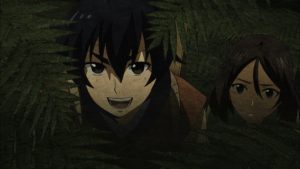 Apart from that matter of personal taste, though, the final episode of Angolmois delivered what I would have hoped. It was tragic, it was poignant, it was terrible – but it didn’t oversell the moment too much. With events this awful in scope, the more the narrative lets them speak for itself the better the story is going to work. And while there were a few moments that pushed a little too hard, for the most part the series let those events speak for themselves. And they did so in a pretty powerful voice.
Apart from that matter of personal taste, though, the final episode of Angolmois delivered what I would have hoped. It was tragic, it was poignant, it was terrible – but it didn’t oversell the moment too much. With events this awful in scope, the more the narrative lets them speak for itself the better the story is going to work. And while there were a few moments that pushed a little too hard, for the most part the series let those events speak for themselves. And they did so in a pretty powerful voice.
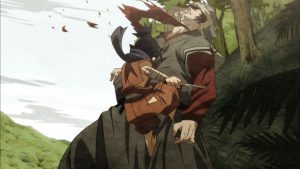 If anime (and by extension manga, since this series is based on one) wanted to show Japan faring well in the Mongol invasions, there were other historical chapters it could have chosen to adapt. In the end the Mongols didn’t win – I mean, that’s obvious, I’m here now typing this. But this part of the Battle of Bun’ei was one defeat after another for the Japanese, and not a scraped knee – total annihilation. Admittedly there was a tremendous amount of luck (or divine intervention, depending on your belief system) involved in the Japanese repelling the Mongols – but that part of the story could have revelled in some serious moments of glory.
If anime (and by extension manga, since this series is based on one) wanted to show Japan faring well in the Mongol invasions, there were other historical chapters it could have chosen to adapt. In the end the Mongols didn’t win – I mean, that’s obvious, I’m here now typing this. But this part of the Battle of Bun’ei was one defeat after another for the Japanese, and not a scraped knee – total annihilation. Admittedly there was a tremendous amount of luck (or divine intervention, depending on your belief system) involved in the Japanese repelling the Mongols – but that part of the story could have revelled in some serious moments of glory.
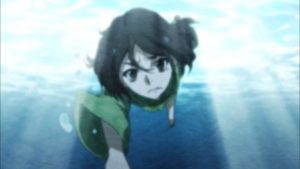 Choosing to focus on this sad and terrible defeat took a lot more guts, because there was glory here too but it required considerably more effort to communicate it. Angolmois is pretty much a story of courage and dignity in the face of (to use an overused expression that actually fits for once) certain defeat. Those qualities weren’t always on display, and it certainly wasn’t pretty – but on the whole, Kuchii and those who were swept up in his wake displayed remarkable bravery and tenacity in fighting for a homeland that actually hadn’t been very good to them. And if you can’t see glory in that, Angolmois isn’t the series for you.
Choosing to focus on this sad and terrible defeat took a lot more guts, because there was glory here too but it required considerably more effort to communicate it. Angolmois is pretty much a story of courage and dignity in the face of (to use an overused expression that actually fits for once) certain defeat. Those qualities weren’t always on display, and it certainly wasn’t pretty – but on the whole, Kuchii and those who were swept up in his wake displayed remarkable bravery and tenacity in fighting for a homeland that actually hadn’t been very good to them. And if you can’t see glory in that, Angolmois isn’t the series for you.
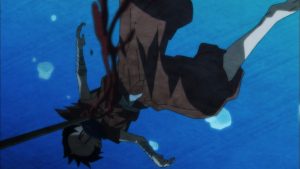 But boy, this was a depressing slog along the way. Kano, raped (presumably) and killed in shielding Teruhi. Amushi stabbed and drowned saving Sana and the others. Pretty much everyone in Teruhi’s retinue and all of Jinzaburou’s fellow exiles wiped out. And all for a Mongol victory which, as I said, was never going to yield them much in the way of spoils. This was mere practice for them, to gain their soldiers “experience”, and a battle for glory between competing factions. The real prize lay far to the north, in Kyushuu, where the smarter among the invaders knew much sterner opposition awaited them. And the Japanese on the mainland were only too happy to let their outlying islanders be slaughtered in order to gain them an extra few days (which would, as it happened, end up proving critical). There’s not a hell of a lot of glory in that.
But boy, this was a depressing slog along the way. Kano, raped (presumably) and killed in shielding Teruhi. Amushi stabbed and drowned saving Sana and the others. Pretty much everyone in Teruhi’s retinue and all of Jinzaburou’s fellow exiles wiped out. And all for a Mongol victory which, as I said, was never going to yield them much in the way of spoils. This was mere practice for them, to gain their soldiers “experience”, and a battle for glory between competing factions. The real prize lay far to the north, in Kyushuu, where the smarter among the invaders knew much sterner opposition awaited them. And the Japanese on the mainland were only too happy to let their outlying islanders be slaughtered in order to gain them an extra few days (which would, as it happened, end up proving critical). There’s not a hell of a lot of glory in that.
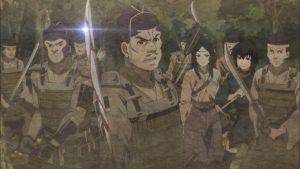 You can quibble with elements of Angolmois, certainly. The production values weren’t exactly consistent, and that screen filter was a questionable choice to put it charitably. But my main criterion for this series was that it avoid the trap of over-embellishing what were already epic events, and stick as close to the historical record as possible while telling an original story. I think for the most part it achieved that admirably, and the story it told was extremely engaging as a result. Good historical drama that can pull that off are pretty damn rare in anime these days, and that just makes me appreciate Angolmois all the more. The tale of how the Japanese actually won the Mongol wars would certainly seem prime fodder for anime, but it would be hard to tell it with as much intimacy and impact as this humbler, bleaker tale.
You can quibble with elements of Angolmois, certainly. The production values weren’t exactly consistent, and that screen filter was a questionable choice to put it charitably. But my main criterion for this series was that it avoid the trap of over-embellishing what were already epic events, and stick as close to the historical record as possible while telling an original story. I think for the most part it achieved that admirably, and the story it told was extremely engaging as a result. Good historical drama that can pull that off are pretty damn rare in anime these days, and that just makes me appreciate Angolmois all the more. The tale of how the Japanese actually won the Mongol wars would certainly seem prime fodder for anime, but it would be hard to tell it with as much intimacy and impact as this humbler, bleaker tale.


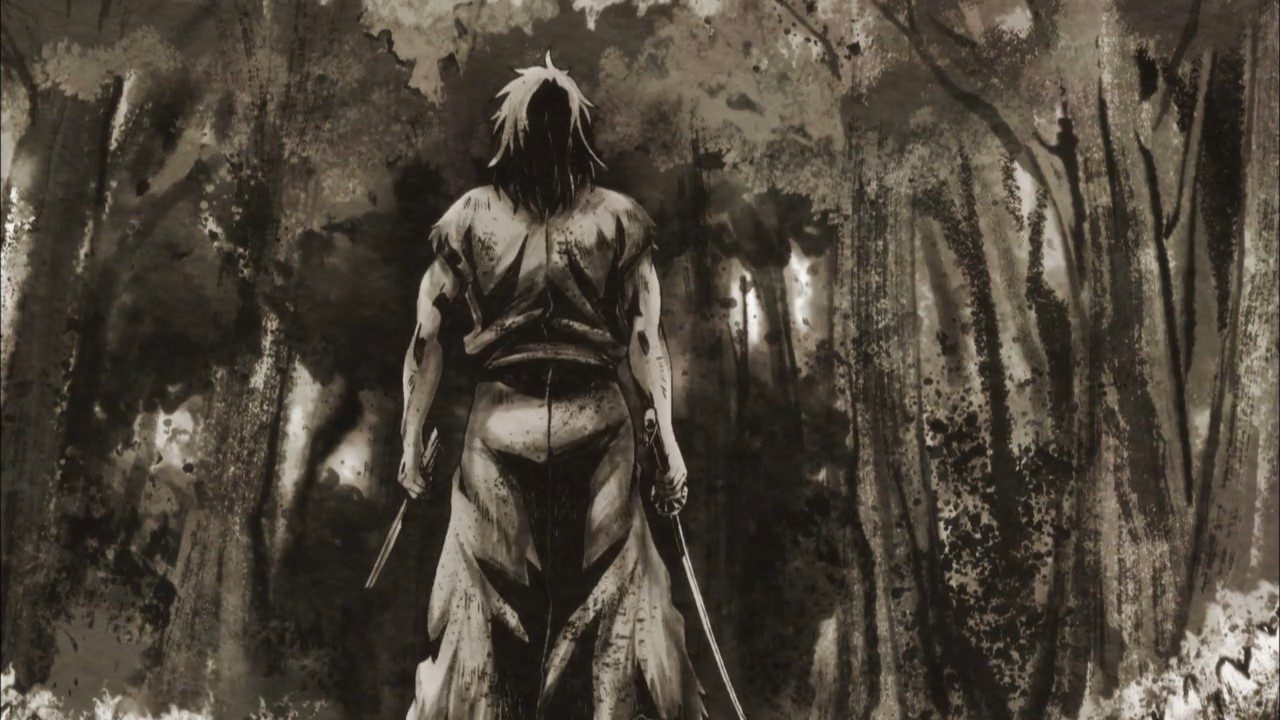
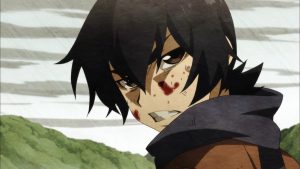
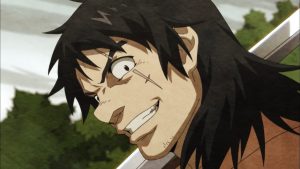
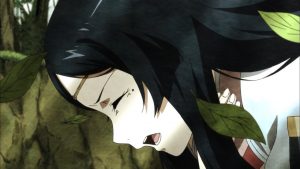
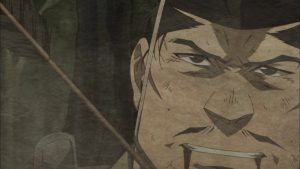
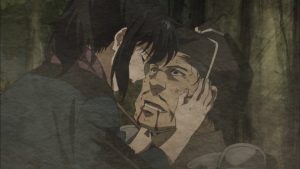
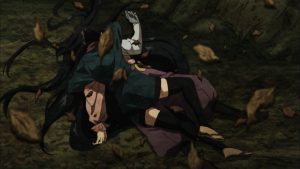
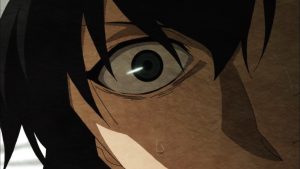
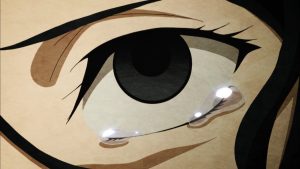
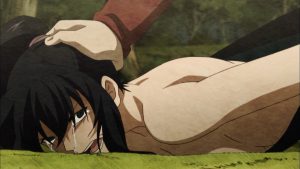
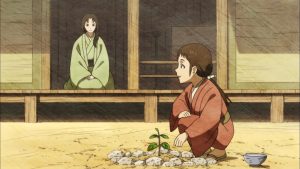
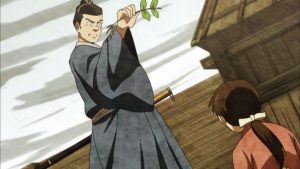
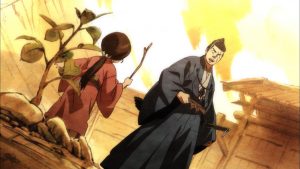
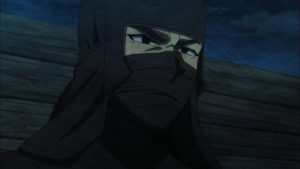
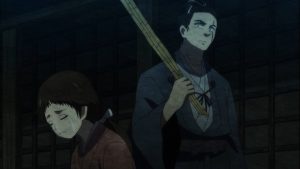
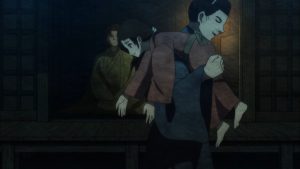
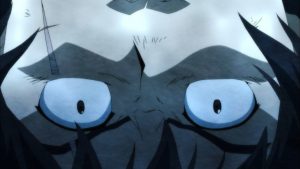

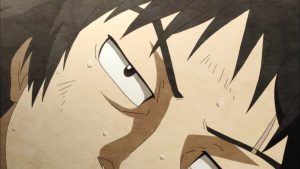
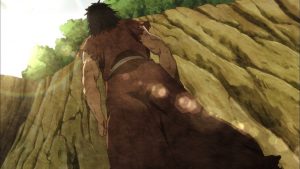
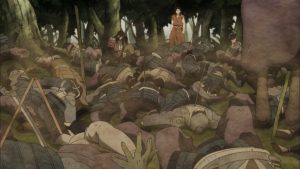
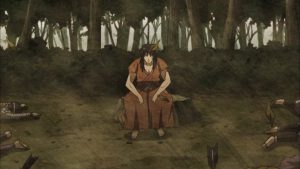
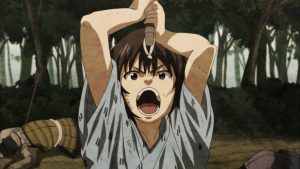
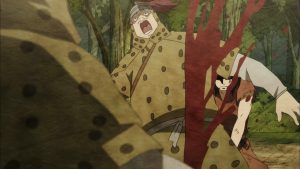
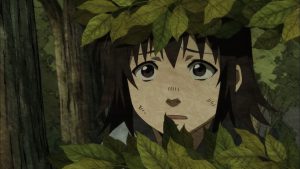
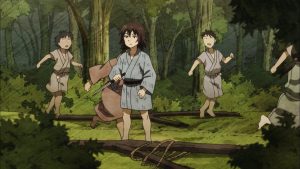
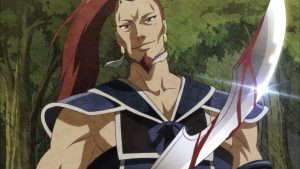
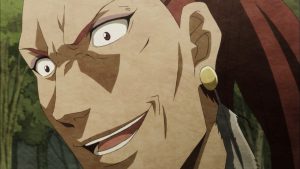
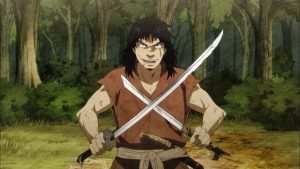
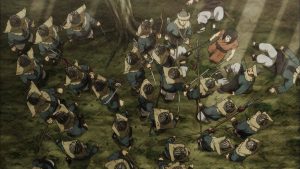
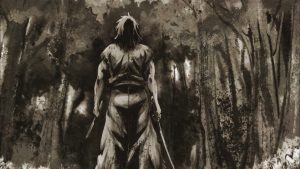
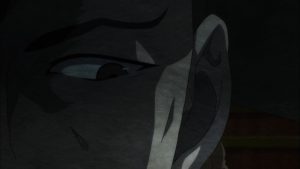
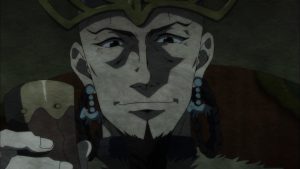

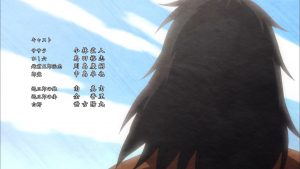
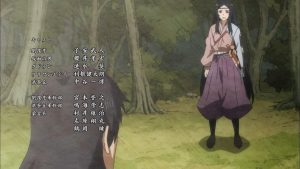
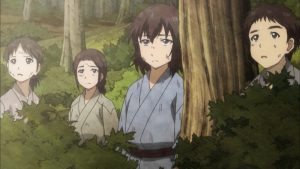

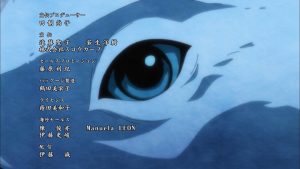
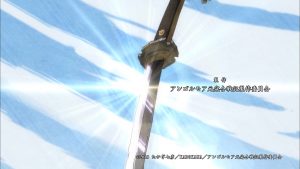

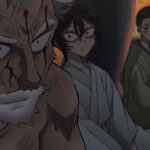
Deluxe
September 26, 2018 at 11:56 pmThis show had an interesting premise and some clever plot choices, but overall it was quickly dragged by its underwhelming production values which made some scenes funnier that they probably intended. The supporting cast barely got developped before the show went Game of Thrones and killed everyone, and the whole story about Antoku and the Tobirai which took the entire middle section ot the show didn’t feel like it amounted to much.
Good historical dramas are indeed rare but this one didn’t really quench my thrist.
GC
September 27, 2018 at 1:29 amI liked the series and was surprised the MCs lived as well (thought all would be killed) but that filter… Who the hell thought that was gonna be a good idea? Same with making Black Clover’s MC so annoying it made people stop watching the series just because of the MCs grating voice.
Guardian Enzo
September 27, 2018 at 6:42 amTo be fair, there were several reasons I stopped watching that…
Matti
September 27, 2018 at 8:38 amReading this, I’m glad I bailed early.
Guardian Enzo
September 27, 2018 at 9:38 amI hope that’s not how it came across – this was in my mind a pretty positive review.
donhumberto
September 27, 2018 at 6:40 pmGreat series all around. Thanks a lot for the review, Enzo, it pretty much sums up my thoughts word by word. I really loved these 2 last episodes (and was pleasantly surprised by how bold and bleak they were) and it’s indeed very rare in anime nowadays to tell this kind of story with no otaku pandering whatsoever. If only we had more like this….
GC
September 29, 2018 at 11:26 amI saw an interesting thread on another forum…
Basically the OP was telling people to quit complaining about poor CGI in anime series due to the fact almost none of us westerners pay for our anime so studios making anime have to slash their budgets to get the series made. I buy boxed sets of series that I like (usually from Amazon or Best Buy) but I’m willing to bet I am one of a small minority that actually do pay for anime.
Guardian Enzo
September 29, 2018 at 11:32 amI’m not sure I even understand what that means, but it seems pretty unlikely to me that there was any such intent.
Tom H
April 25, 2022 at 2:21 pmStumbled across this when looking up some Ghost of Tsushima stuff. Think I may give it a shot, and the last anime I watched was DBZ like 20 years ago lol. I understand why people like fantasy anime, but I like ones that are grounded in reality. If you have any suggestions for good and fairly accurate historical anime, I’d be open to them. Thanks!
Guardian Enzo
April 25, 2022 at 3:09 pmOddly enough I might suggest Seirei no Moribito, which has a fantasy element but mostly plays like a historical drama. Shouwa Genroku Rakugo Shinjuu might be an option – it’s a personal story but also a chronicle of the history of Rakugo over the past century.
There’s always Kingdom, which depicts the warring states period in China without too much fantasy embellishment (the first half of S1 has craptacular animation, be warned). Shoukoku no Altair only covers a small portion of the manga, but it’s an interesting factionalized take on the struggle between the Ottoman Turks and Christian nations in medieval Europe, from the Turkish perspective. Vinland Saga (Vikings) would be another possibility.